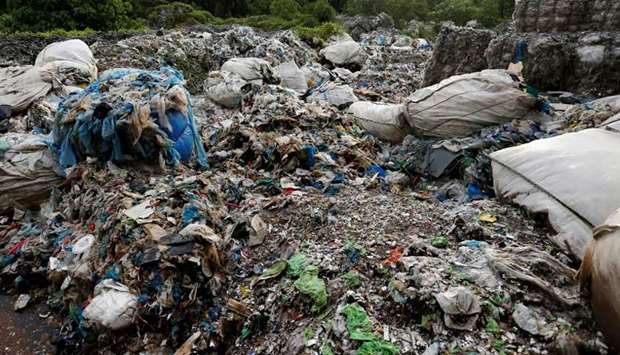Britain will take back 42 containers filled with plastic waste that had been illegally shipped to Malaysia, authorities said on Monday.
Malaysia last year became the world's main destination for plastic waste after China's ban on scrap imports disrupted the flow of more than 7 million tonnes of trash annually.
Hundreds of containers of plastic waste have been held at ports across Malaysia, having arrived without the required permits.
The 42 containers that the United Kingdom will take back had arrived at Penang Port between March 2018 and March 2019, Malaysia's environment ministry and the British High Commission said in a joint statement.
‘The containers...were deemed illegal as they failed to comply with the necessary import papers,’ they said in the statement.
Reuters reported last month that over 300 containers carrying plastic waste were being held at Penang, and some countries had agreed in principle to take back 200 of those.
Malaysia had vowed earlier this year to send plastic waste back to the source country and get them to pay for the transportation costs.
Dozens of recycling factories, many operating without a licence, have cropped up in Malaysia since the Chinese ban on scrap imports came into effect. Authorities have stepped up scrutiny as residents complained of environmental damage.
A lot of the plastic scrap coming into the country is contaminated and low-quality plastic from developed countries that is non-recyclable, and ends up being burnt or buried in landfills, the environment minister has said.

